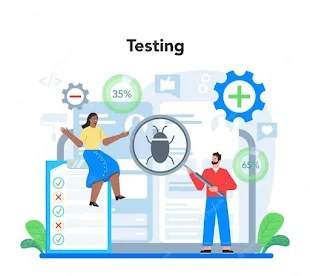In today's fast-paced world of software development, quality assurance and testing play a critical role in delivering reliable and robust applications. Software testers are the unsung heroes who ensure that software meets user expectations and functions flawlessly. To excel in their roles, testers rely on a variety of essential testing tools that streamline their processes, enhance efficiency, and improve the overall quality of the software. In this blog post, we will explore some of these indispensable tools that every software tester should have in their toolkit.
Test Management Tools: These tools help testers organize, plan, and execute test cases effectively. Popular options include TestRail, Zephyr, and TestLink. They facilitate test case creation, test execution tracking, and provide valuable insights into test progress.
Bug Tracking Systems: Jira, Bugzilla, and Redmine are renowned for their bug tracking capabilities. These tools help testers report, prioritize, and manage defects efficiently, ensuring that developers address critical issues promptly.
Automation Testing Frameworks: Selenium, Appium, and Cypress are top choices for automating repetitive test scenarios. They allow testers to create robust automated test scripts, ensuring thorough regression testing without manual intervention.
Performance Testing Tools: LoadRunner, JMeter, and Apache Benchmark are essential for evaluating how an application performs under different loads. Testers use these tools to identify performance bottlenecks and ensure optimal system response times.
Code Review Tools: While not exclusively for testers, code review tools like Crucible and GitHub facilitate collaboration between developers and testers. They help identify potential issues early in the development cycle, reducing the likelihood of defects reaching the testing phase.
Continuous Integration/Continuous Deployment (CI/CD) Tools: Jenkins, Travis CI, and CircleCI enable testers to integrate testing into the CI/CD pipeline seamlessly. This ensures that tests are executed automatically with every code change, providing rapid feedback to developers.
API Testing Tools: Postman, SoapUI, and Rest-Assured are invaluable for testing APIs. They allow testers to send requests, validate responses, and ensure that APIs function correctly, promoting smooth communication between software components.
Database Testing Tools: To validate data integrity, testers use tools like DBUnit, SQLUnit, and Redgate SQL Compare. These tools help identify inconsistencies and ensure that the database supports the application's requirements.
Test Data Management Tools: Tools like GenRocket and TDM solutions assist in generating test data, which is crucial for executing comprehensive test scenarios and edge cases.
Security Testing Tools: Security is paramount in today's software landscape. Tools such as OWASP ZAP, Nessus, and Burp Suite help identify vulnerabilities and security loopholes in the application.


Comments
Post a Comment